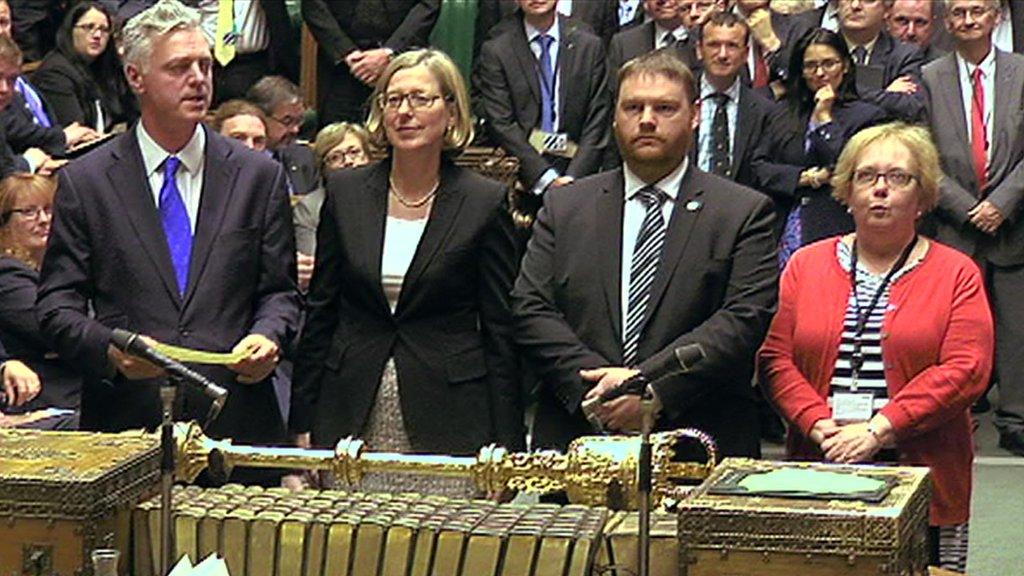EU referendum: Rebels defeated after Tory MPs offered concessions
- Published
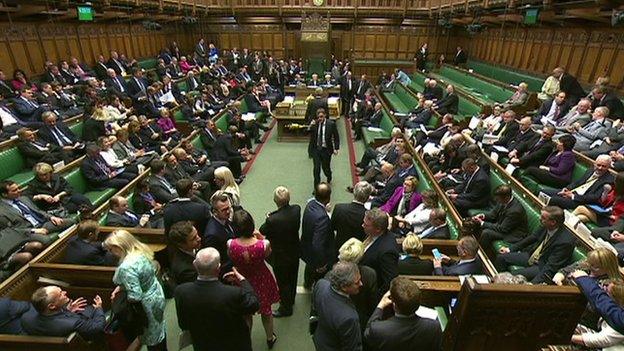
Twenty-seven Conservative MPs have voted against the government over its EU referendum plans.
The MPs backed an amendment to the EU Referendum Bill, external aimed at ensuring the government could not campaign to stay in the European Union in the weeks leading up to the poll.
But they were comfortably defeated, with most Labour MPs abstaining.
The vote came after ministers offered concessions on the campaign rules as well as the timing of the referendum.
The government said the poll would not be held on 5 May 2016, the same day as elections to devolved parliaments in Scotland, Wales and Northern Ireland.
They will also review the application of "purdah" rules limiting government announcements in the run-up to polls.
Sir Bill Cash's rebel amendment, which would have reinstated the purdah period, was defeated by 288 to 97.
The amendment was backed by all the SNP's MPs, plus four Labour members, six from the DUP, three from Plaid Cymru, two from the SDLP and UKIP's Douglas Carswell.

Analysis
James Landale, BBC deputy political editor
So, in the end, only 27 Conservative MPs rebelled over plans to give the government a free hand in the final weeks of the forthcoming EU referendum campaign.
Not much to see here, you might think, time to move along. And yet what we saw today at Westminster was fascinating, the growing pains of a new parliament on show for all to see.

The vote followed a Commons debate on the bill, which paves the way for the referendum to be held by 2017.
While the draft law is backed by the overwhelming majority of MPs, the government is facing opposition within its own ranks and more widely in Parliament over a number of issues, including the date of the referendum, the conduct of the campaign preceding it, the funding available to campaign groups and political parties and interventions by the European Union itself.
Although he has yet to name a poll date, David Cameron had not discounted holding it next May, at the same time as national elections in Scotland, Wales, and Northern Ireland, English council elections and London's mayoral election.
But amid what Europe minister David Lidington said was "a great deal of speculation" about the likely date and widespread opposition to a 5 May poll, he said the bill would be amended to explicitly rule this out.
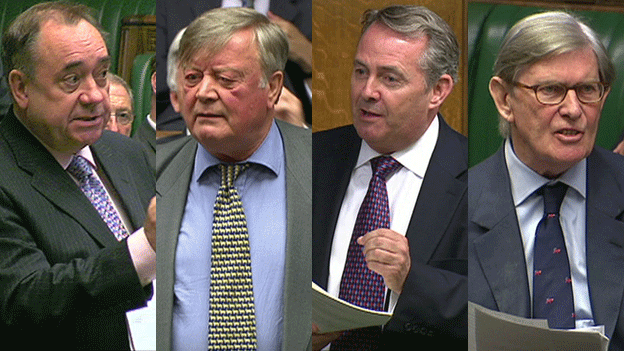
Contributors to Tuesday's debate included Alex Salmond, Ken Clarke and Liam Fox. A rebel amendment from Bill Cash (right) was defeated.
Conservative backbenchers are also angry that existing rules governing the conduct of elections and referendums could be relaxed in a way which they say would allow the government to use its resources to influence the outcome of the vote.
The Political Parties, Elections and Referendums Act 2000 , externalsets out a 28-day period ahead of a referendum, during which ministers, government departments and local authorities are banned from publishing material relating to the issue in question.
'Clear mechanism'
Prime Minister David Cameron has proposed suspending these rules, arguing the government will not be "neutral" when it comes to the referendum and they would mean ministers were barred from speaking about European court decisions and the EU budget.
Speaking in the Commons, Mr Lidington defended the move, saying "world and European business would not stop for the referendum" and the rules, as they stood, could prevent ministers conducting day-to-day business.
But he said he recognised the strong feelings of MPs on the matter and he pledged to set out in law during the bill's passage what the government could or could not do, either by proscribing certain forms of communications or through a wide-ranging code of conduct.
"We will ensure there is a clear mechanism in the four weeks before polling day, government will not undertake a range of activity that most will regard as the province of the campaigns, such as issuing mailshots, running commercial advertising campaigns or e-mailing voters in one way or another," he told MPs.
He added: "It is vital that the British public and both sides in the referendum debate accept that the referendum is being conducted fairly and everybody feels they will be able to accept the result."

Timetable to the referendum
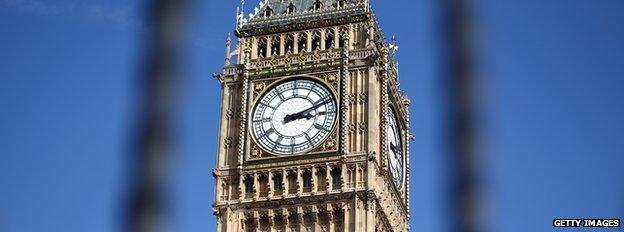
27 May, 2015
The European Union Referendum Bill, external was unveiled. This is the UK legislation required to allow the referendum to take place. It is currently being debated by MPs before moving to the House of Lords. It is expected to become law in the Autumn.
25-26 June, 2015
The first EU summit after the UK general election takes place. David Cameron has pledged to meet every other EU leader before this date, to try to win support for his proposed reforms.
5 May, 2016
This was regarded as the first possible date for the referendum but it has now been ruled out by ministers. due to opposition to holding it on the same day as other elections, including for London's mayor, the Scottish Parliament and the Welsh and Northern Ireland assemblies.
9 June 2016
The UK's first referendum on EU membership, in 1975, was held in early June but this date may come too soon. Mr Cameron has said the timescale should be determined by the renegotiation process.
August 2016
Foreign Secretary Philip Hammond says he wants to wrap up EU negotiations by the summer of 2016 if possible, and, if not, by the end of 2016. In the context of the EU this is a very tight deadline, particularly if treaty change is triggered by Mr Cameron's demands. Treaty change requires unanimity of all member states and national parliaments - which took 10 years to complete last time around.
September 2016
A date in late September would avoid a clash with other elections and meant the poll was held when the weather was still good, which would boost turnout. However, it would clash with the party conference season.
November 2016
A new US president will be elected. The US has made clear that it hopes the UK will remain within the European Union.
April-May 2017
This would be an obvious choice but is complicated by the fact that French presidential elections are due to take place then. With French President Hollande focusing on getting re-elected, the government will be keen to have its negotiations wrapped up by now.
September 2017
This is getting tight now, with David Cameron having pledged to hold the poll by the end of 2017. There are also German parliamentary elections taking place this month.
End of 2017
The referendum must be held by the end of 2017. Should there be a No vote, the UK will not leave the EU immediately. There will be a transitional period, potentially lasting several years, during which the terms of exit will be negotiated.

But former Conservative attorney general Dominic Grieve said the government was in "something of a hole" and its actions were "an open invitation to discord".
And his fellow Conservative Bernard Jenkin told MPs: "The idea that this prevents ministers from saying anything and ministers won't be allowed to take part in the referendum campaign is clearly tosh."
He added: "I seem to remember the prime minister being very vociferous in the run-up to the Scottish independence referendum. But he was not able to use his ministerial car, he wasn't able to fly at prime ministerial expense, he wasn't able to use the machinery of government to promulgate the messages he wanted."
Labour asked for "clarity" about how the government would operate during the referendum period but said they would abstain in any vote on the issue rather than siding with Tory rebels.
Last week, MPs overwhelmingly backed plans for a referendum, allowing the legislation to move to the next stage of its progress through Parliament. It still has several more stages, external to pass through, however.

EU referendum in focus
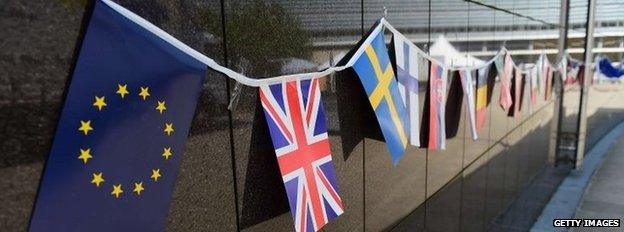
David Cameron is starting renegotiation of the terms of Britain's EU membership ahead of a referendum. Here is some further reading on what it all means:
Q&A: The UK's planned EU referendum
UK and the EU: Better off out or in?

- Published16 June 2015
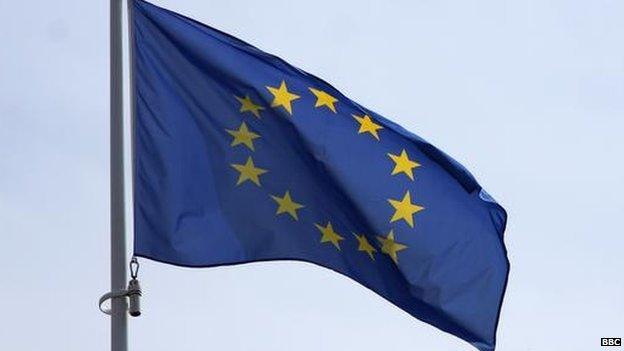
- Published30 December 2020

- Published9 June 2015
